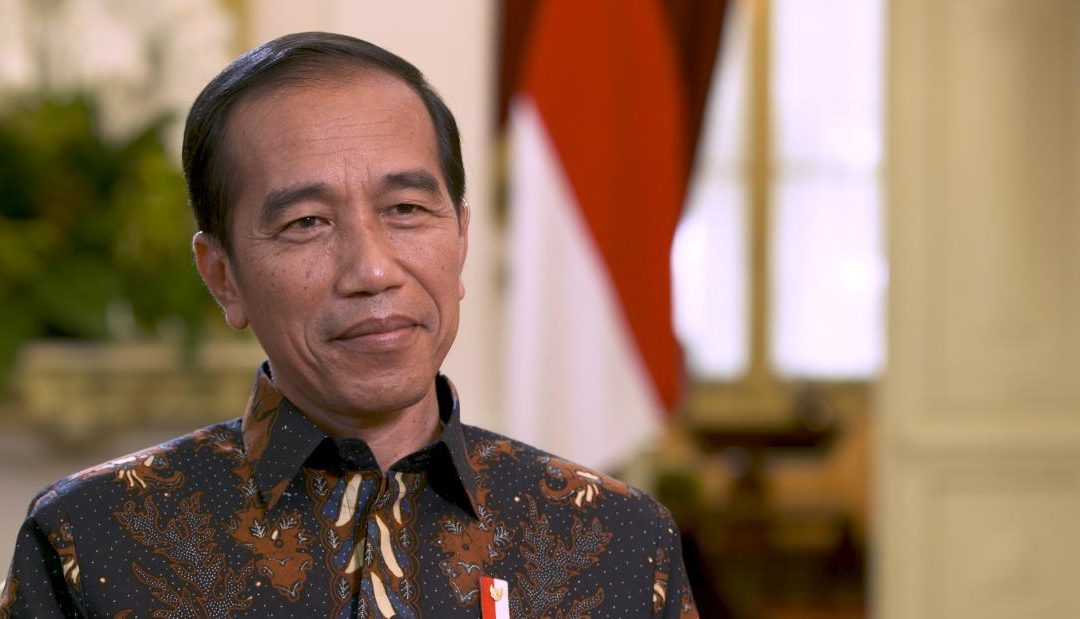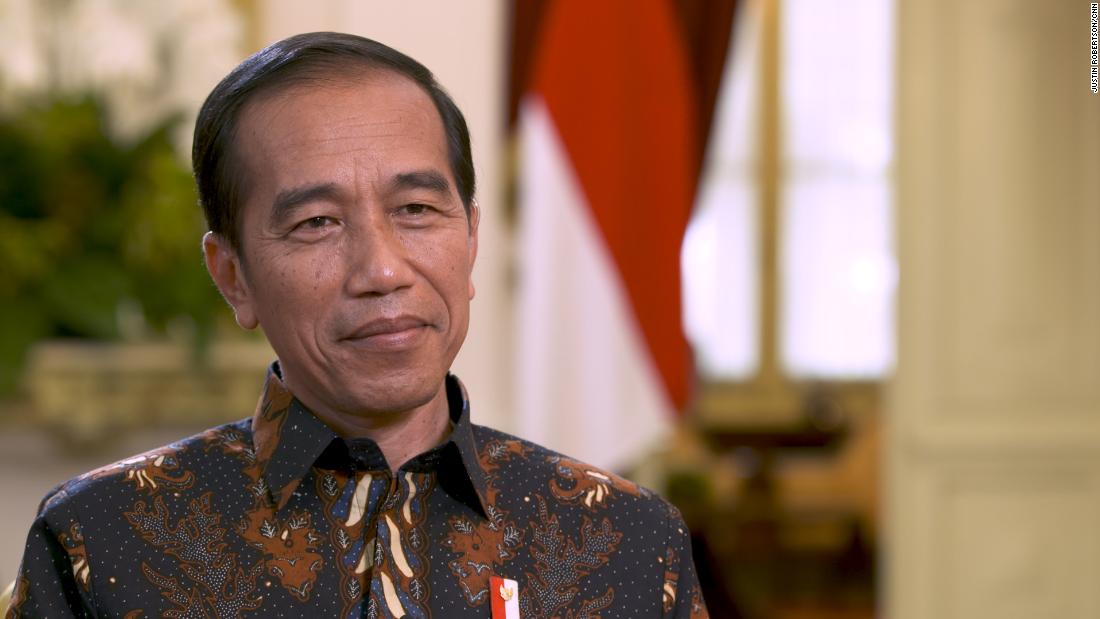[prisna-google-website-translator]
President Joko Widodo says Islam in Indonesia is ‘tolerant’ as rights groups warn of rising fundamentalism
by globalpro | Jul 30, 2019 | Business |


Jakarta (CNN)In his very first worldwide tv interview considering that being re-elected in May, Indonesian President Joko Widodo rejected being worried about the increase of fundamentalism in his nation, stating that the Islam practiced there is progressive and tolerant.
In his 2nd term as leader, Joko deals with an uphill struggle of joining the world’s most populated Muslim country, and battling what he calls “scams and phony news that affected the mind of individuals.”
“We now need to bring back the scenario and interact to construct this nation,” he stated, at the Merdeka Palace in Jakarta.
No compromising worths
Five years earlier, Joko won the presidency
on a guarantee to increase tasks, punish corruption and reinforce human rights. Throughout his re-election project, he welcomed aspects of Indonesia’s spiritual.
His running mate was conservative cleric Ma’ruf Amin, who supports Sharia law and thinks that homosexuality needs to be criminalized. Amin is now Indonesia’s vice president. That was viewed as an effort to consume into Prabowo’s
conservative assistance base and calm those who declared he was not Islamic enough.
Joko rejected that he befriended hardliners to win the election, recommending his outwardly nonreligious worths had actually not been jeopardized.
“We wish to deal with all components of society. We want to deal with everybody to establish this nation, however not with those who wish to destroy this nation in regards to its ideology and in establishing our economy. There is no compromise for me, “he stated.
Joko called Amin a”moderate Muslim”and stated it was sensible to have a cleric running mate in a nation that has the biggest population of Muslims on the planet.
“I’m not going to alter, “he stated.”I will not alter what I think.”
Rising intolerance
While the President supports that Indonesia is a varied and tolerant society, rights groups state there is increasing intolerance from hardline spiritual groups, particularly versus spiritual minorities and the LGBT neighborhood.
In 2016, Jakarta’s Chinese Christian guv (a Joko ally) Basuki Tjahaja Purnama, much better called Ahok, was
implicated of insulting the Quran and
imprisoned on blasphemy charges . Enormous rallies requiring his jailing incapacitated the capital.
Ahok was launched in January after serving simply under 2 years in prison, however the event revealed spiritual fundamentalism to be an effective force.
Discrimination versus LGBT individuals was currently magnifying throughout Joko’s very first term, sustained by what Human Rights Watch (HRW) stated was “
government-driven ethical panic .”
In Indonesia, homosexuality is not prohibited apart from in ultra-conservative Aceh province, which observes Shariah Law and
openly flogs those condemned of having homosexual sex.
In May 2017, a
authorities raid on a health club and sauna resulted in the arrests of 141 individuals in a single night due to the fact that of their assumed sexuality. Person Rights Watch
reported that authorities raids and vigilante attacks led to the arrests of at least 300 individuals that year– the greatest number ever taped in Indonesia.
A variety of prominent Indonesian political leaders, consisting of numerous federal government ministers, have
let loose anti-LGBT rhetoric and a parliamentary
proposition still being discussed would criminalize gay sex and adulterous sex.
In its
World Report 2019 , HRW stated that while Joko’s administration “took little actions” in 2018 to secure the rights of “a few of Indonesia’s many susceptible individuals” more might be done.
“Although Jokowi released a plea for spiritual tolerance in his yearly State of the Nation address on August 16, his administration has actually stopped working to equate his rhetorical assistance for human rights into significant policies throughout his very first term in workplace,” the report’s authors stated.
On this concern Joko is noncommittal, recommending that since Indonesia is a mainly Muslim nation, its Muslim people would decline higher rights for LGBT individuals. A
2013 Pew study discovered that 93% of the nation contradicted homosexuality.
“Tolerance in Indonesia, we can see. Everyone has great tolerance. When it comes to laws and guidelines, I can guarantee you, there will be significant rejection by the individuals,” he stated.
‘No tolerance for terrorism in Indonesia’
While the LGBT crackdown was driven in part by Islamic hardliners, Joko stated he is not stressed over the increase of spiritual fundamentalism in Indonesia.
In a nation of 267 million individuals, spread out throughout 17,000 islands it is typical to have “2, 3, 4 percent of individuals who are hardliners,” he stated.
“It is the responsibility of the nation to understand how to accept them. That (is) the objective of this nation: to end up being a luxurious, simply and flourishing nation,” he stated.
But that welcome ended up being a political flashpoint just recently when Abu Bakar Bashir, an extreme Islamic cleric and the supposed mastermind behind the 2002 Bali battles, was
given early release from prison on humanitarian premises.
Following a massive reaction– from liberals along with hardliners– Joko retreated from the strategy. Bashir stays behind bars and on his fate Joko is now unwavering. “The decision was no,” he stated.
The danger of homegrown terrorism stays. In May 2018, a wave of fatal,
ISIS-inspired battles rocked Indonesia’s second-largest city Surabaya, targeting churches and the cops.
Returning Indonesian ISIS fighters likewise provide a brand-new obstacle to the nation’s police and intelligence companies. Authorities
apparently foiled an attack right before the election, apprehending a minimum of 9 fighters connected with ISIS– a minimum of 6 of whom were understood to have actually battled in Iraq and Syria, authorities stated.
Joko stated his counter-terrorism forces– called
Detachment 88 — have a two-pronged method.
“There are specific cases where we can welcome them, and return them to normalcy. If it is difficult to do, then the tough technique is done through stringent law enforcement. We do not endure terrorism in Indonesia,” he stated.
Joko stated deradicalization programs were working.
“Major terrorists have actually gone back to society, developed structures to welcome ex-terrorists who can live usually. That is the success of deradicalization in Indonesia,” he stated.
Growth and advancement a top priority
But Joko’s focus stays on the economy and on Indonesia’s advancement.
During his very first term, Indonesia’s
economy grew at simply over 5% per year– shy of the 7%
guaranteed , however enough for the nation’s GDP to exceed $1 trillion in 2017. The IMF thinks that with financial reform and financial investment, Indonesia’s economy
might grow by 6.5% by 2022.
To accomplish that objective, Joko stated: “We need to perform reform on an enormous scale.”
That indicates mentor employees brand-new abilities, presenting tax reform and bring in financial investment and constructing the massive facilities jobs that have actually ended up being a trademark of Joko’s presidency.
The latter will include Indonesia’s most significant trading partner: China. After the election, the federal government signed offers worth billions of dollars with the Chinese federal government for significant facilities jobs as part of Beijing’s flagship Belt and Road effort. And this month Indonesia supposedly asked China to establish an unique Belt and Road fund after providing $91 million in tasks,
according to Reuters.
But
reports recommend that smaller sized countries are being
encumbered financial obligation from these big Chinese mega-projects and
one issue is that China will remain in a strong position to affect their tactical choices if they default.
Joko stated Indonesia will not fall victim to the so-called “debt-trap diplomacy” issue, since the offers made were company to service, he stated, and will “benefit the nationwide interest of Indonesia.”
Meanwhile, on July 11, 22 nations, consisting of Japan and the United Kingdom,
provided a joint declaration condemning China’s mass detention of Uyghur and other minorities in the nation’s Xinjiang area.








Recent Comments